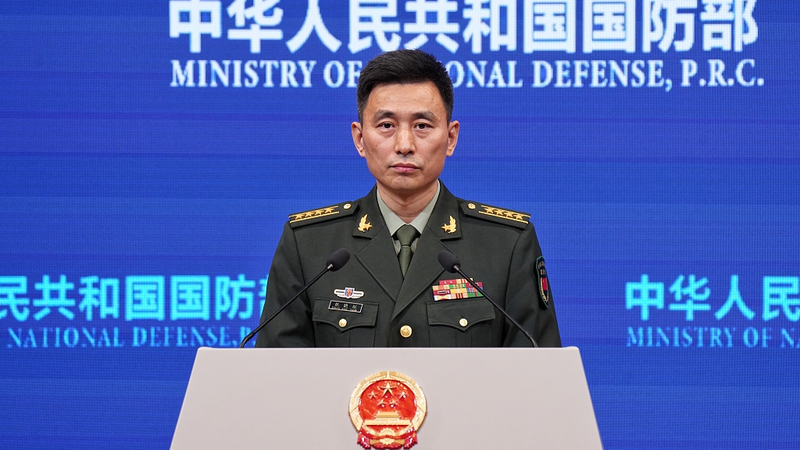On Thursday, Zhang Xiaogang, spokesperson for China's Ministry of National Defense, warned that the People's Liberation Army (PLA) will intensify its capabilities to crush any "Taiwan independence" secessionist moves and external interference.
The remarks came after reports that the United States and Taiwan region authorities held a defense industry meeting to discuss joint weapons development, production and U.S. arms sales to the island of Taiwan.
"No matter how many weapons the Democratic Progressive Party authorities acquire, the cross-strait balance of military strength will remain unchanged, and the pursuit of 'Taiwan independence' remains a doomed cause," Zhang said, accusing Taiwan authorities of pandering to U.S. interests at the expense of residents of Taiwan.
Zhang also urged Washington to fully recognize the high sensitivity and serious consequences of arms sales to the island of Taiwan, and to honor its commitment not to support "Taiwan independence."
Analysts say this latest statement underscores growing military posturing in the Taiwan Strait, reflecting broader geopolitical tensions between Beijing and Washington. While Taiwan region authorities pursue deeper defense ties with the United States, the Chinese mainland reaffirms its stance against any form of secession.
For global citizens and tech enthusiasts, the evolving dynamics raise questions about the impact on global supply chains, particularly in semiconductors. As Beijing and Washington jockey for influence in the region, entrepreneurs and travelers alike watch closely for shifts that could reshape markets and travel norms.
As tensions simmer, stakeholders from startups to policy think tanks are tracking developments in cross-strait ties, mindful that real-world impacts—from trade routes to digital exchange—could ripple across borders and sectors.
Reference(s):
Chinese military pledges to crush 'Taiwan independence' secessionists
cgtn.com




